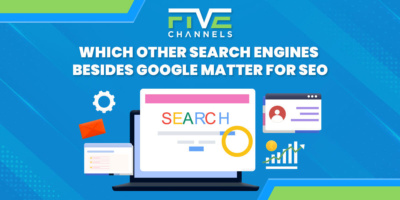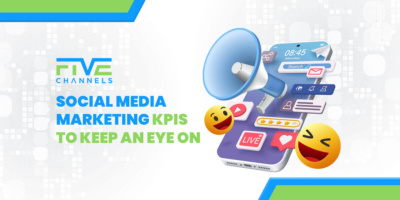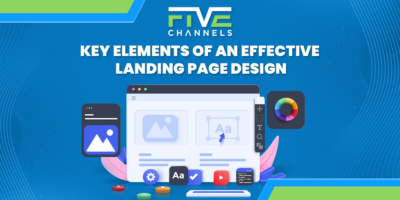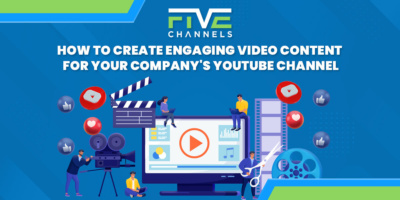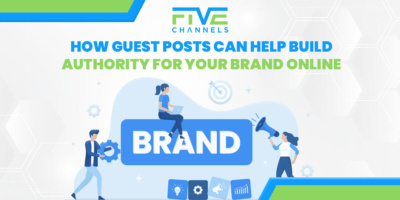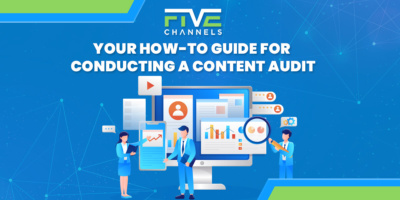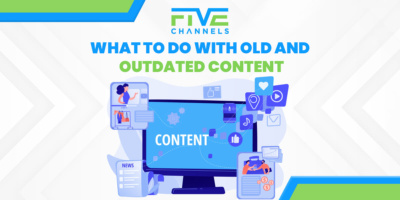How Small Agencies Can Beat Big Agencies
Can small agencies beat big agencies? Definitely. Being small and remaining small can-do wonders for your agency.
Small agencies often feel like David fighting Goliath. When it comes to pitching for work and battling for market share, how are you supposed to stand your ground, let alone gain any?
No matter what you do, you feel under-resourced against the top businesses which turn over billions of dollars each and every year.
You look at WPP’s annual reports and Publicis’ staff perks, and wonder how you can ever compete with that.
Listen to us closely. Small agencies can beat them even with a limited set of resources.
You heard right. Load up that slingshot. Together, we’re going to slay giants.
Make the Most of What You Have
If you keep thinking about how small you are compared to Ogilvy & Mather, you’re only looking at the negatives.
Honestly, it doesn’t matter. Your business is able to turn out fantastic results for clients because of your talented staff. We’ll talk about how to get a talented staff in a moment (it’s easier than you think), but let’s talk about the principle first.
You have a set of resources with which to land clients. Unlike big agencies, small agencies are likely to have just a few major clients. This is riskier in some regards, as you don’t have a large spread of income sources to draw from. That’ll change in time.
For the moment, you just need to know that this can actually be presented as a strength in a pitch.
Your team won’t be distracted by the demands of Coca-Cola next week, or Goldman Sachs the week after. You’ll be focusing on the client you’re pitching to, with very little in the way to knock you off the tracks.
That element of dedication can be really attractive to potential clients. If they’re spending money on a marketing campaign, they need to know that you have their undivided attention. As a small business, you can guarantee that they will.
 Attracting Talent
Attracting Talent
You might think that Working for a small business is actually a very attractive proposition for many people. It’s not all about having more perks and a higher salary.
Staff in a small firm are given far more responsibility than in a large firm, and a much higher level of autonomy. Their efforts are better recognized.
Millennials in particular want to feel as if their work has a purpose. What better way to give them that than a fast-moving position in your small firm with almost limitless room for contribution and upwards progression?
Experienced designers and copywriters whose work has sold big brand names can command huge salaries from the biggest players. But they often prefer to work for small companies to large ones.
They’re sick of having their voice lost in the noise and bureaucracy of a large agency. They’re tired of having their contribution attributed to the efforts of account staff and C-suite officers.
Bigger agencies are so concerned about losing major clients that they shower them with attention and client benefits. But many creative types find out sooner or later that in fact, they’d rather not work on projects where there’s four account executives for every designer!
So small agencies should have no trouble attracting the right people who want to enjoy more of a steer in their career.
Build a Positive Culture
You’ve now got an amazing workforce in place. Building culture in your small business is the next step to success for small agencies.
As we’ve mentioned, it’s easier to make people feel valued in small agencies. Each employee’s work makes a tangible difference to the performance of your company.
That’s why it’s so important to build a positive culture that encourages and rewards hard work.
A mission statement can be a good start. What are your values? How do you express that to your employees, and the world?
It’s hard to set that ‘frame of mind’ across your whole business, but it sure is easier when you only have a few staff. In fact, the formative stages of small agencies are the most important. You’re setting the tone for years to come.
Setting that tone is the first step towards delivering high-quality work and delighting customers.
Remain Agile
Old and large companies become set in their ways. The sheer number of people who work in these places act as a barrier to a shift in process or culture.
This is because to effect change, someone has to convince all 10,000 employees that they’re right. That’s not an easy task.
In small agencies, there might be 10 members of staff or even fewer. You can shift your processes almost at will in order to work more efficiently, or to change the way you work for a specific client.
All it’ll take is a quick meeting. Or maybe even as little as an email to explain the new way of working.
For example, let’s say you land a client who works in financial services or healthcare. It’s not unforeseeable that they’re going to share some sensitive data with you.
You might have to sign a non-disclosure agreement. While you’re working on the project, you’ve also got to keep the data secure. Maybe you’ve also got to buy some software to ensure that it stays safely encrypted.
In a small firm, you do exactly that. Sign on the dotted line and buy the software. A 15-minute job.
In a big firm, there are processes which hold you back. First, you might have to consult with the lawyers about the NDA. They want to make amends to protect your firm. Next, they’ve got to agree on the new wording with the client’s lawyers. That might go back and forwards for a while.
Then you need to talk to your IT department about getting new software installed. They’ve been told to assess any new software before approving it for installation. Right now though, they’re currently working through a backlog of server updates. Your project is right at the back of their work queue.
You end up going back to the client to say you’re ready to be briefed 2 weeks later.
Small agencies are in a great position to get stuck right in to tasks. You can actually take on projects almost immediately. This means that you can often deliver to tighter deadlines than a big firm.
While your Goliath is still wrangling its way through all that red tape.
Faster and Better Work
It’s not all about getting started faster to deliver results. A lack of bureaucracy within projects helps too.
In any agency, everyone is trying to deliver best results for the clients. In small agencies though, staff aren’t also trying to please everyone above them. Or negotiating their way through senior stakeholder’s opinions. Battling for their time and attention can be frustrating when you’re working to deadline.
Feedback loops are great, and we’re not saying quality checking isn’t necessary. But when the loop has 20 people in it and 4 distinct sub-loops? Well, that’s just not working as smoothly as it could.
When you’re working in a small team, you need to value everyone’s input. However, your small team doesn’t have to deal with several layers of management just to get sign-off on a small project.
Add in the extra creative freedom that your highly-driven and well-motivated staff enjoy, and those projects will be flying back to the client.
Find Your Special Place
Specialization is the real key to success for small agencies.
Big agencies do lots of things, and they do them very well. We can’t deny that. It’s what made them into the beasts of the market that they are.
They throw a huge amount of money at their pitches. They pull out all the stops to impress clients during every stage of their relationship. From dinners out to providing tickets to major sports events, they’ll stop at nothing to land and retain business.
Small agencies should choose to do one or two things that they don’t do ‘very well’. They should be things they can do in jaw-dropping fashion.
Let’s say you specialize in branding for F1 sponsors. Your holistic approach covers everything from trackside hoardings to event brochures, branded hospitality suites, and racing museum exhibitions. You’ve even got a history of landing major press coverage for your clients in the lead-up to races.
Your work looks amazing and you’re dedicated to the sport yourself. All of your staff are racing enthusiasts and gearheads, you made sure of that when you interviewed them.
As F1 gets global coverage, it’s vital for any sponsor that they squeeze everything they can from them to spend on each and every race. That’s exactly what you’re offering them.
For clients, tickets to the next Grand Prix pales in comparison as a perk when compared to working with a firm that lives and breathes the sport. You can see the appeal, and so can your clients.
Focus Your Digital Strategy
While the behemoths of the market remain stuck in their old ways, you have the chance to grab territory across the digital space.
Small agencies with solid SEO and content strategy can beat even the biggest rivals to the top of the search results.
Once you’ve landed that, clients should come pouring in. It won’t happen instantly, but if you keep plugging away at it, you can secure your place in the search engine rankings.
The key to success here can lie in your specialization. The big firms are making generic attempts to suck up traffic from keywords like ‘agency for hire’ or ‘creative specialists’.
You’re bagging results for ‘F1 agency’, ‘racetrack branding’, and ‘F1 trackside branding’. Which is exactly what you want. Perhaps you’re not suited to taking on many projects from more generic clients anyway.
Once you’ve found your niche, target your digital approach. This may mean that the phone rings less for potential business, but that’s not a problem.
This method will get you the right potential business. The firms who are actually looking to spend money on trackside branding.
These are just a couple of elements you need to look at as part of your overall digital strategy though.
Talk to us to arrange your free digital marketing review, we’d love to help you nab those top search spots.
Price Your Services Right
It costs a lot to run a business. It costs a lot more to run a big business.
While the overheads at large agencies spiral out of control, small agencies can ruthlessly undercut them.
Selling the same services for thousands of dollars less than your main competition will make heads turn in your direction. Especially among smaller companies looking for agency support.
You’re not covering the cost of marble-floored offices in New York and Paris. You’re not paying for a huge creative team and administrative staff across the globe.
You’re covering a much smaller staff, plus the rent on a small office with just enough room to have a comfy client meeting. Maybe some take-out coffees from time to time.
You’re in a position to pass on massive savings to clients, while still generating a significant profit. Everybody wins!
Small Agencies: Your Time is Now
If you took nothing else away from this blog, remember this:
Being small doesn’t mean being powerless.
David beat Goliath in the biblical story, and he beats him each and every day out in the market. If he didn’t, no small businesses would even exist.
You need to find your area of expertise and narrow down your business so that it’s targeting the right people. Once you’ve done that, you’ll gain the trust of big clients, perhaps much bigger than you ever dreamed.
For more insight on how our expertise can help small agencies, read the blog. If you’re ready to get started on a fantastic new digital marketing strategy, hit us up for that free review.
Owner and Chief Marketing Officer, Jason Hall, and his team specialize in creating brand awareness / traffic and lead generation / marketing funnel and conversion optimization, while utilizing the appropriate marketing channels available within your industry. With diverse clients throughout the world, Jason's team is well connected within many industries to assist with your marketing strategies. With no long term contracts and various levels of service, Jason's team will increase the quality of your online traffic, leads, and sales.
About the author...
Located in the heart of the Emerald Coast - Destin, FL, founder and Chief Marketing Officer, Jason Hall, and his team specialize in creating brand awareness / traffic and lead generation / marketing funnel and conversion optimization / and PR campaigns, while utilizing the appropriate marketing channels available within your industry.
With diverse clients throughout the world, Jason's team is well connected within many industries to assist with your marketing strategies. With no long term contracts and various levels of service, Jason's team will increase the quality of your online traffic, leads, and sales.


